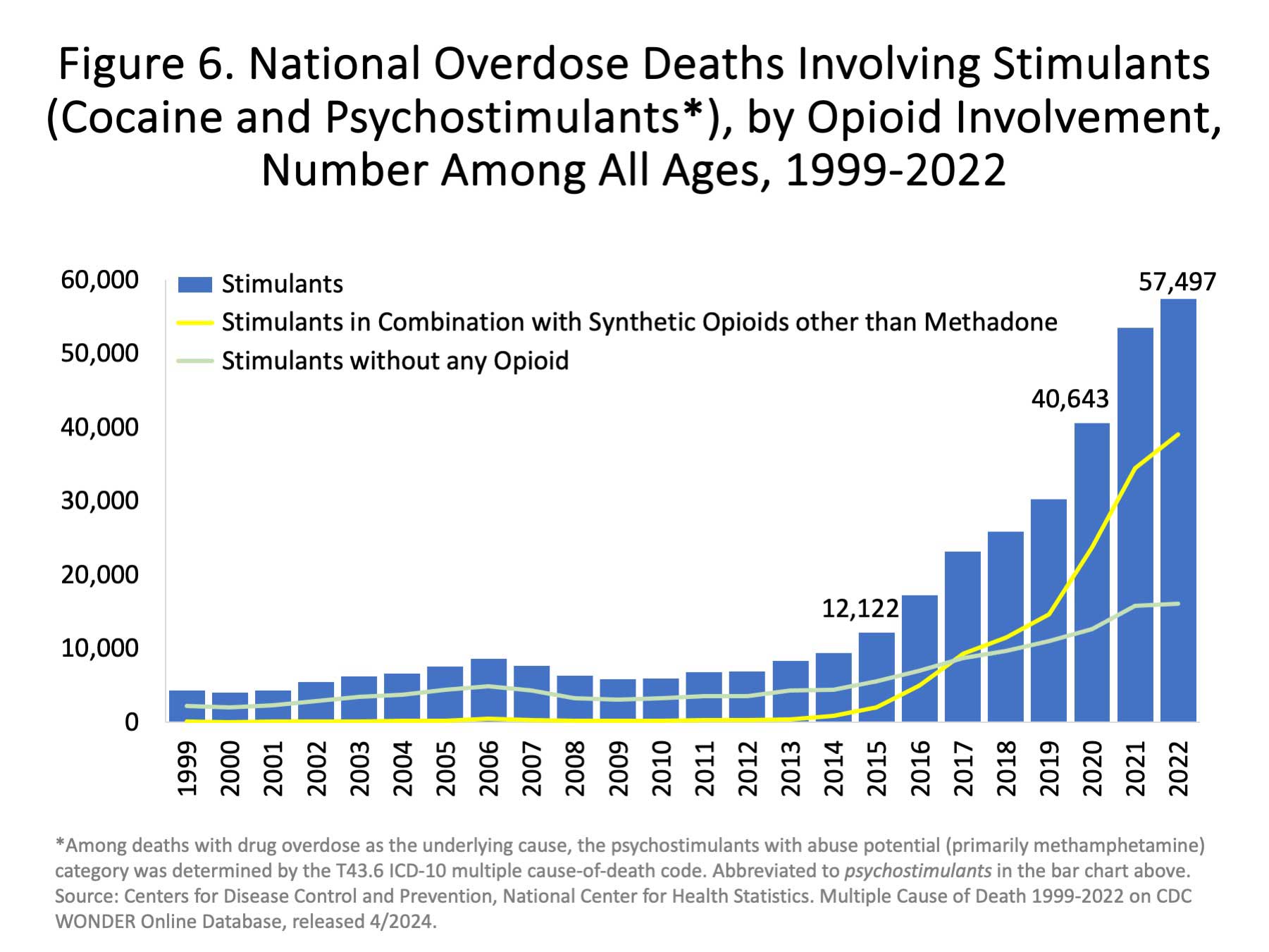Cocaine and methamphetamine use rates and overdose deaths have been increasing across the United States for over a decade. The rise in stimulant use has contributed to what experts have called the “fourth phase” of the overdose epidemic. The first phase of the epidemic corresponded with the sharp rise in misuse of prescription painkillers, the second wave involved an increase in heroin use, and the third wave was associated with contamination of the drug supply with powerful synthetic opioids like fentanyl. The current fourth wave of the epidemic involves an uptick of overdoses attributed to illicit stimulants mixed with fentanyl.
The figure below from the National Institute of Drug Abuse (using data originally collected by the CDC) shows the steady increase in national overdose deaths involving stimulants..

The New England ATTC offers several training and technical assistance products to build workforce capacity in this high-priority area. In particular, we offer a robust set of training and technical assistance offerings focused on contingency management, as it is one of the only evidence-based interventions for stimulant use.
The purpose of this daylong introductory level training is to provide information about central nervous system stimulants and their impact on brain, body, and behavior. The day begins with a review of the latest data on the patterns and trends of stimulant use and availability in the United States and beyond, followed by a review of the mental and physical health consequences and cognitive impact of stimulant use. The training then explores the differential rates and impact of stimulant use on several populations and the relationship between stimulant use and HIV risk. The training concludes with a discussion of how to implement effective behavioral treatment interventions and recovery approaches when providing services to people with a stimulant use disorder.
This webinar reviews the rising prevalence of stimulant use disorders and discusses some of the unique clinical challenges presented by individuals who use stimulants. Evidence-based behavioral/psychosocial strategies are presented, along with pharmacotherapies currently considered promising.
This workshop provides a more in-depth view of evidence-based behavioral/psychosocial strategies for stimulant use disorder, and considers key principles associated with implementing these treatments in practice. Presented by Dr. Richard Rawson.
In partnership with a NIDA-funded R01 (MPIs: Becker and Garner), the New England ATTC developed a suite of resources to help opioid treatment programs throughout the region to implement contingency management. Visit https://sites.brown.edu/projectmimic/ and click “Training Materials” to view a 1-hour introductory contingency management webinar, view an example contingency management encounter, and view videos on how to assess fidelity and design a contingency management protocol. Then visit “Project MIMIC Resources” to download a “Protocol Development Worksheet” and a “Contingency Management Explanation Worksheet.”
The New England ATTC partners with Dr. Carla Rash from UConn Health, a national expert in contingency management delivery and a former trainer for the Veteran’s Administration national contingency management roll-out, to provide training and technical assistance throughout New England. Contact us to request contingency management support!